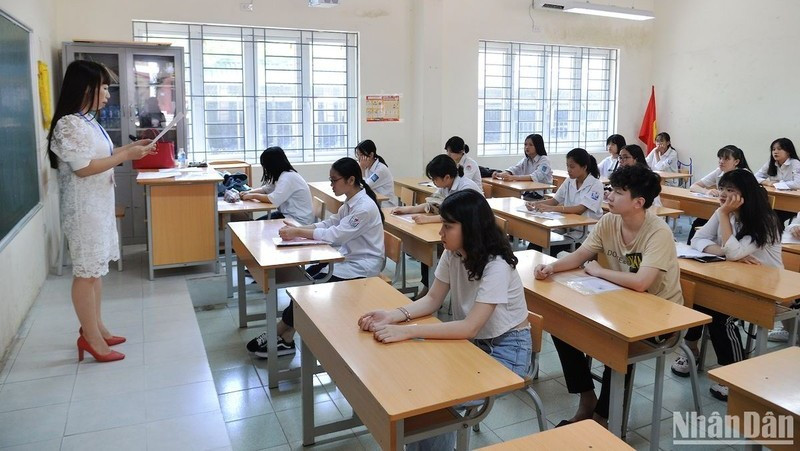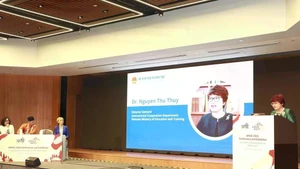But the pressure to strive for good results, and achieve the set goals is what candidates are most worried about. Therefore, sleep of the student during the exam season often comes hard, with vague fear.
They are afraid of being late to the exam room, afraid of forgetting knowledge, or not being able to take the test. The fear keeps piling up as the exam date approaches.
The pressure from the candidates themselves is already very heavy, besides, they also have to continue to bear more pressure from family, teachers and friends.
Because of their anxiety, some parents mobilise all the time before the exam to invite teachers to tutor their children. Reprimands if the child does not achieve the same results as the family and teachers expect. The attractive rewards are announced in advance to encourage their spirit. All of these actions indirectly put psychological pressure on the children.
According to medical experts, with each exam season, the risk of depression in school-age children tends to increase. Even, due to the pressure, many candidates suffered from emotional disorders, anxiety, fear, depression, chronic insomnia, etc., and had to be hospitalised for treatment.
The worrying thing is that only once the child shows abnormal behaviour and hurts himself/herself, is when the parents would find out, and then the condition is already quite serious.
Those who have spent many years as a student understand that studying well and taking good exams is the desire of parents and students. However, each student has different abilities, interests and aspirations. Good academic achievement, high grades, and passing into public high schools or top universities are not necessarily the only and most important goals.
There are always many options for each person, especially at the stage of preparing to enter the threshold of life. There are students who, instead of striving for a university degree, actively choose to study a vocation according to their strengths and passions, thereby promoting their capacity and achieving success.
Understanding this, before entering the exam, parents need to take care of their children's physical and mental health, help them have a scientific study and rest regime; counselling students to choose the right school for their level and ability.
Children need understanding, attention, encouragement and companionship from their families, so parents should avoid imposing and placing too many expectations on their children. This way, children will enter the exam with a relaxed, calm, confident and effective mind.
















